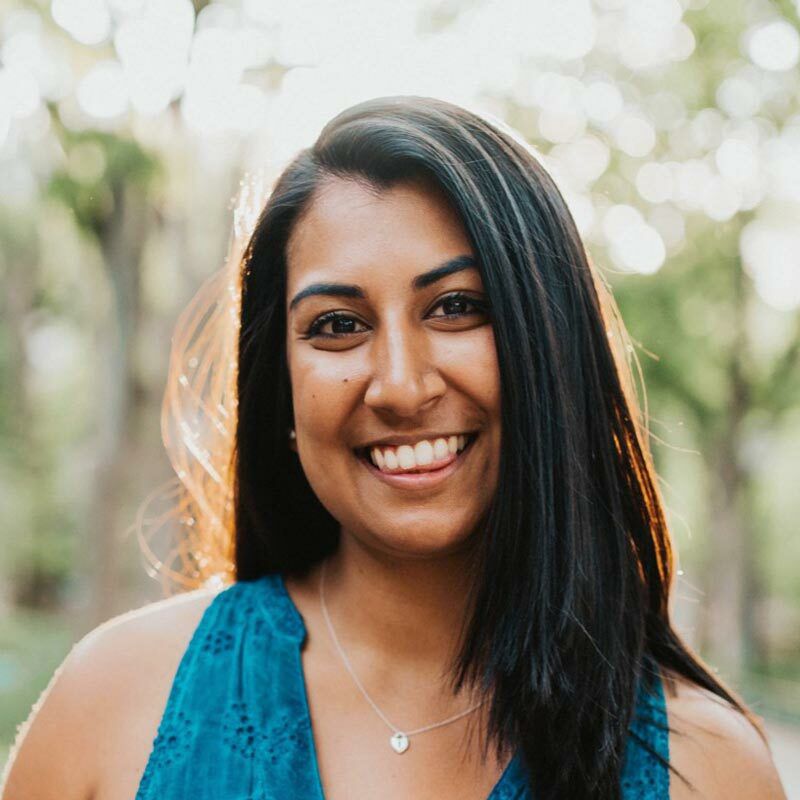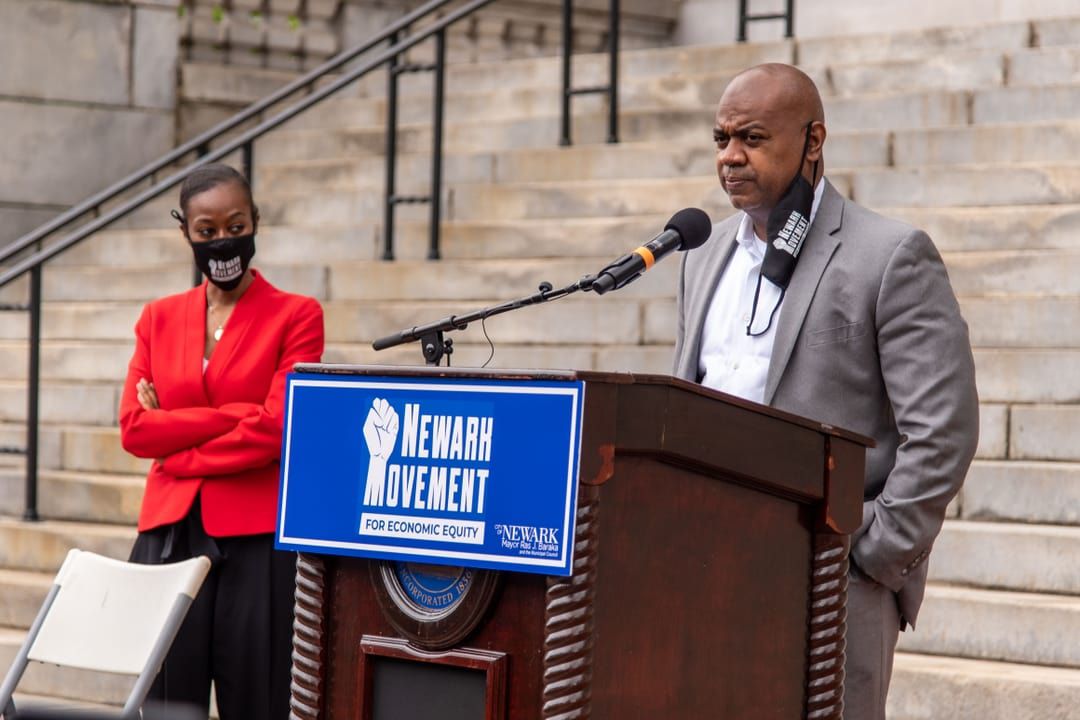👋 Welcome to Starting Early. Every other week, we spotlight new reports, useful news, engaging interviews with people doing important work in the field, and interesting takes on issues that matter.
This week’s issue explores the growing movement to help people who struggle to make ends meet by providing guaranteed income in the form of no-strings-attached cash grants. Supplementing a family’s income can lead to many benefits, not least of which is improved brain development.
Dr. Kimberly Noble, professor of neuroscience and education at Columbia University, and her team recently released their pivotal Baby’s First Years study examining the causal relationship between poverty reduction and increased brain activity. She says, “Poverty places the young child’s brain at much greater risk of not going through the paces of normal development.”
Several organizations and municipalities have initiated guaranteed income programs to bolster low-paid families’ financial security in the face of increased economic stress from the COVID-19 pandemic. Since 2018, at least 20 guaranteed income pilots were launched across the US, with more planned. The growth of these programs is especially timely given the end of the federal Child Tax Credit, which provided a much-needed lifeline to more than 35 million families during the uncertainty of the pandemic and reduced monthly child poverty by close to 30%.
Read on and click the links to go deeper.
1 big thing: Cash assistance improves early childhood brain activity

Baby’s First Years examines the impact of poverty reduction on infant and toddler cognitive, emotional, and brain development via monthly, unconditional, unrestricted cash assistance to mothers.
From May 2018 to June 2019, the study provided cash assistance to 1,000 mothers who gave birth to healthy babies in the greater metropolitan areas of New York City, Minneapolis, St. Paul, New Orleans, and Omaha. The mothers received monthly payments of either $20 or $333 for the first 52 months of their child’s life. This amounted to a 20% increase in annual income for mothers in the high-cash assistance group.
The results were encouraging:
- Positive physical changes: Infants in the higher-cash group were more likely to show greater brain activity in areas related to thinking and learning and lower activity in areas associated with behavioral and attention issues.
- Reduced familial stress: Besides being able to provide necessities for their families, parents had more time, attention, and energy to engage and support child development.
- Improved financial planning: Mothers reported being able to save money for unexpected expenses in addition to paying for such basics as toiletries, transportation, food, clothes, medicine, and childcare.
Why it matters: Childhood poverty is widespread in the US. Nearly 1 in 6 infants and toddlers reside in households lacking economic security and more than 1.5 million US households survive on less than $2 per day. Living in poverty has been shown to impede child brain development, cause stress and poorer health, and impair socioemotional development.
Given the prevalence of childhood poverty, investing in initiatives like Baby’s First Years can provide lasting benefits to communities across the US. Research demonstrates that increased family income can lead to greater educational achievement and earnings into adulthood, more frequent preventive medical care, and improved language, memory, and executive function.
2. Investing in an equitable future one mom at a time

In the weeks immediately following childbirth, families must adapt to the physical, social, and psychological challenges of a new baby. This time is critical to the health and wellbeing of infants and their mothers, yet many families are left at their most vulnerable.
We spoke with Megha Agarwal, executive director of the Monarch Foundation, about the Foundation’s Bridge Project, New York City’s first guaranteed income program. Launched last year, the project provides financially-strapped mothers with unconditional biweekly cash payments of $250 or $500 during the first 1,000 days of their children’s lives.
An idea is born: “One of our principals for the Monarch Foundation is the co-founder and co-executive director of Nido de Esperanza,” Megha says. “When the pandemic hit, they were getting calls from mothers saying, ‘I don’t know how I’m going to make rent this month. I don’t know how I’m going to get food on the table. I can barely afford diapers for my child.’ We dispersed over $150,000 to over 100 families.”
The power of choice: “One of the best things about cash is that it’s flexible to needs. Some mothers say, ‘I need diapers.’ Some say, ‘I need to keep my electricity on.’ People have different requests. Cash is empowering. It allows you to make your own decisions rather than someone saying, ‘this what I think your solution should be.’ You’re able to take things into your own hands and you don’t see that a lot with the supports we provide our families.”
Goals for the future: “In the longer term, we’re thinking about how we can get this to be something that isn’t privately funded. The need is so large, even just in New York, where this can’t be supported feasibly and sustainably with private dollars. So, it’s about how can we get policymakers bought into the idea that cash can have monumental effects for future generations.”
Benefits beyond financial security: “One mom reflected, ‘I always thought the reason I’m in this situation is because of something I did. I’m not actually supporting my family in the way that I want to, and it’s my fault.’ This process and being part of the program helped her realize it’s not that she’s making the wrong choices, she just has terrible options. It’s allowed her to view herself with more dignity and more deservedness.”
For more information, read this New York Times article featuring stories from participating moms. Follow the Bridge Project on Instagram, Twitter, or YouTube.
One smile to go: A movement toward economic justice 😊

A majority Black and Latino city, Newark faces large racial disparities in income and wealth. Compared to their white counterparts, Black and Latino residents have lower rates of homeownership and are more likely to live in poverty.
The city is doing its part to provide residents with the economic resources needed to thrive. In May 2021, Newark joined 27 pilot programs nationwide conducted in partnership with Mayors for a Guaranteed Income with the launch of the Newark Movement for Economic Equity. The pilot began with 30 Newark residents and was recently expanded to 400. Over two years, half of the participants will receive $250 every other week and half will receive $3,000 twice a year. This innovative approach will help the city to better determine best practices for providing guaranteed funds to residents.
In a Newsweek op-ed, Mayor Ras Baraka wrote, “low- and middle-income residents often fall through the cracks in our existing social safety net. Alarming numbers of residents across the state of New Jersey are unable to access the intended benefits from programs like TANF and SNAP because of overly strict eligibility criteria, a stressful and confusing maze of paperwork, and payments disbursed in ways that severely limit their use…Implemented wisely, supplementing our existing systems of support, such a program could also help bring our many unbanked or underbanked residents into the financial system — and begin laying the groundwork for true economic resilience and economic justice.”
Follow the Newark Movement on Instagram or Twitter to learn more!
4. The roundup
Learn about the latest events, new funding opportunities, and jobs in the maternal and infant health and early childhood fields:
- Combatting poverty in New York: Register for a February 16 Alliance for Early Success webinar about the Baby’s First Years study and other New York initiatives to reduce poverty.
- Exciting research from South Carolina: Join Centering Healthcare Institute and Dr. Amy Crockett on February 23 for a webinar sharing the latest research showing CenteringPregnancy’s impact on racial disparities in birth outcomes. Register here.
- Innovative ventures in early childhood development: Promise Venture Studio is hosting a webinar featuring presentations from members of its third cohort of Promising Ventures Fellowship. Register to attend on March 2.
Listen and learn: In an NPR interview, Columbia University’s Dr. Kimberly Noble discusses how income can affect childhood brain development.
